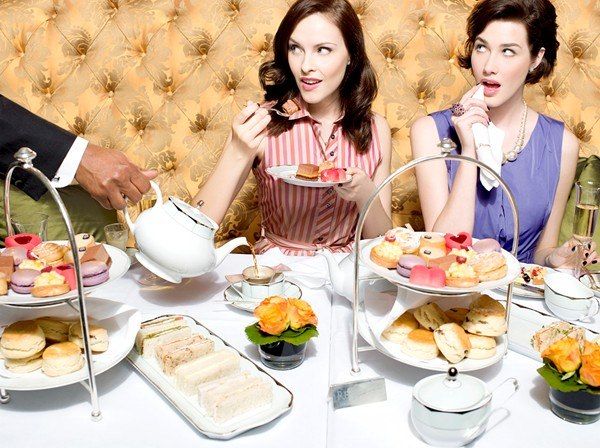
All iLive content is medically reviewed or fact checked to ensure as much factual accuracy as possible.
We have strict sourcing guidelines and only link to reputable media sites, academic research institutions and, whenever possible, medically peer reviewed studies. Note that the numbers in parentheses ([1], [2], etc.) are clickable links to these studies.
If you feel that any of our content is inaccurate, out-of-date, or otherwise questionable, please select it and press Ctrl + Enter.
5 topics you don't need to discuss at the New Year's table
Last reviewed: 01.07.2025
The New Year holidays are just around the corner, which means that soon the houses will smell fragrantly of pine needles, and people will be preparing to welcome the new year, 2013. Some will celebrate the arrival of the New Year with their families, while others will gather a noisy and cheerful group of friends. Delicious treats, warm company, clinking glasses and toasts – the New Year holidays bring warmth, joy and a good mood to our homes. However, the magical atmosphere of goodness and fun can suddenly deteriorate, and the feast can turn into a verbal ring, where friends or relatives will start to sort things out or prove their point of view. In order to prevent such a situation and not to spoil the good mood, Web2Health suggests that you familiarize yourself with the topics that are undesirable to raise at the holiday table in order to avoid unnecessary disputes and celebrate the New Year without excesses.
Criticism
It is important to remember one most important rule - refraining from criticism will save the holiday and will not allow it to turn into a gathering of the offended and insulted. This applies to criticism of the prepared dishes, which, for example, in your opinion, are oversalted or undersalted, the outfits of the guests, and much more.
Even if you don't like something, it's better to remain silent rather than point out the person's mistakes, because it won't change anything, but you'll show off your lack of tact. It's hard to find words that would better reflect the essence of the problem: "He who, while dining at a party, reviles and slanders what is served is declared a hopeless fool, poorly understanding table customs, for it is more appropriate for a well-bred and prudent person to eat and keep quiet, for it costs him nothing." These words were written by the Spanish satirist Francisco Quevedo in his book, which has the wonderful title "The Origin and Definition of Foolishness."
Politics, money and religion
These topics have no place at the festive table, because people are already preoccupied with financial issues and political events every day, and discussing these topics at the table can lead to quarrels and raised voices. Someone can support one party, someone else another... It is not far from here to the fistfights that we have the "happiness" of observing in the Verkhovna Rada.
Funny situations
If you decide to amuse all the guests gathered at the table with some funny story about the misadventures of your friend or relative, think a hundred times before doing it. No one doubts that all those present will not mind hearing a funny story, but how the main character himself will react to it is unknown. You can put a person in an awkward position and thereby spoil his mood, and in the worst case - make an enemy for yourself.
 [ 1 ]
[ 1 ]
Discussion of human habits

Celebrating the New Year is not the right time to point out someone's shortcomings. Each of us has our own little sins. If you are so impatient, then talk to the person alone, but not at the common table, in the presence of guests.
 [ 2 ]
[ 2 ]
Gossip
In general, gossiping about another person will not add you any points, especially in a circle of guests. Discussing people will not show you in the best light. In addition, no one guarantees that this conversation will not be passed on to your victim.
